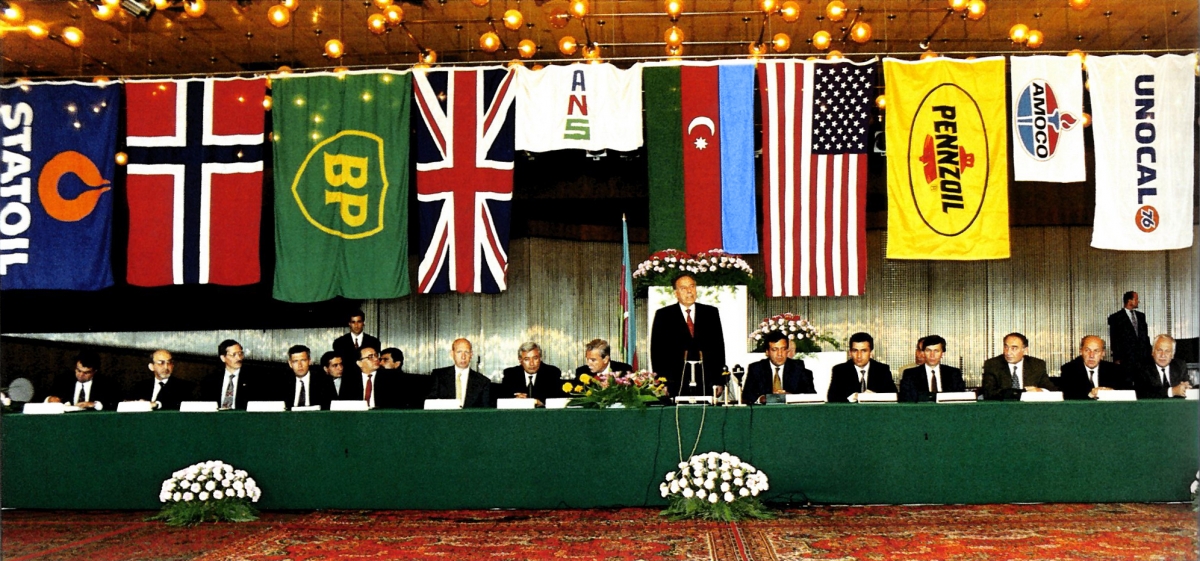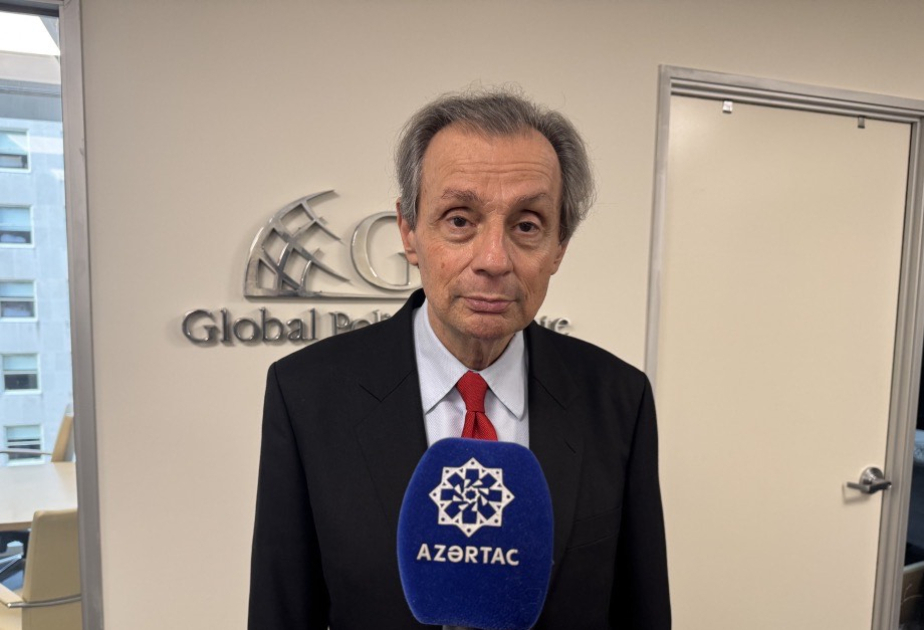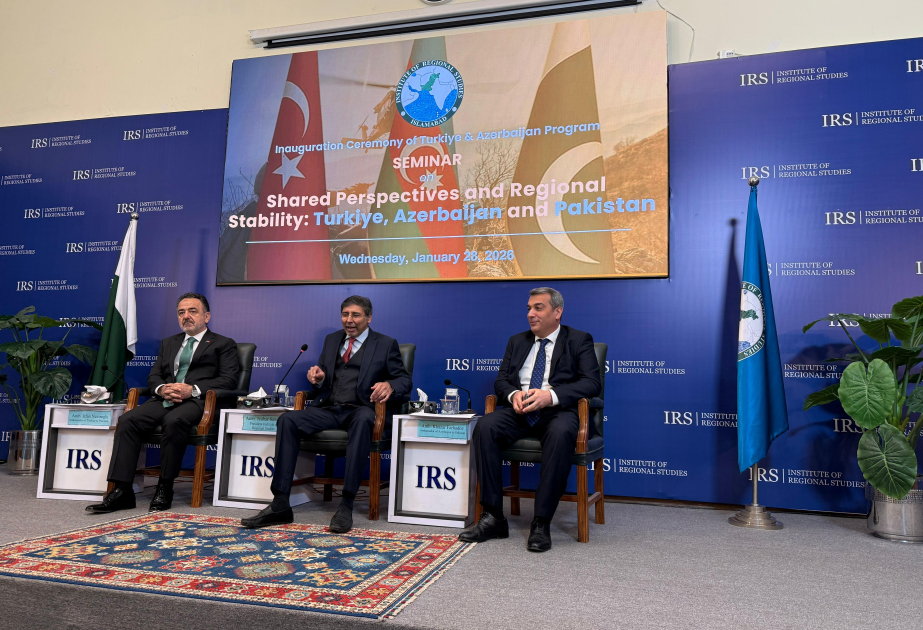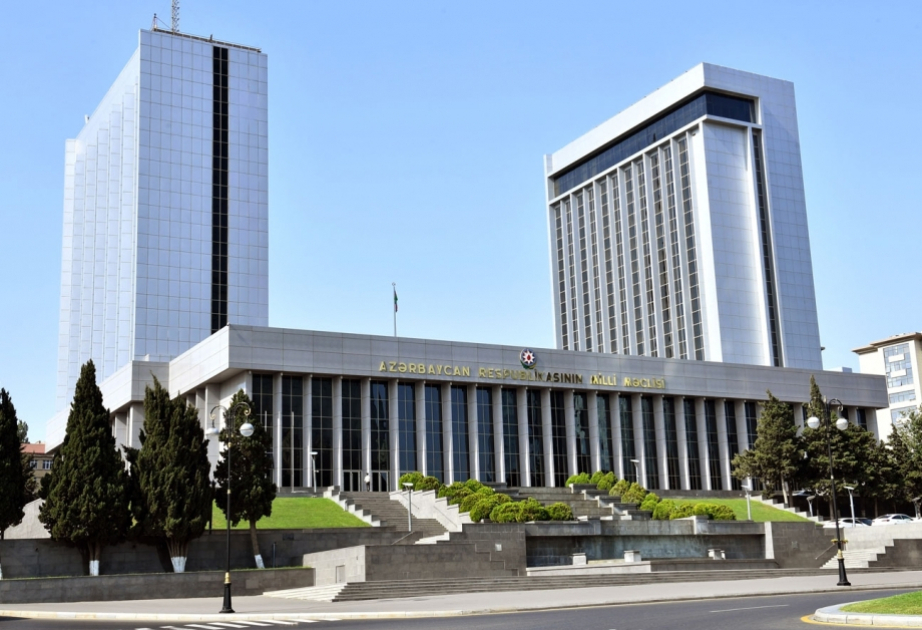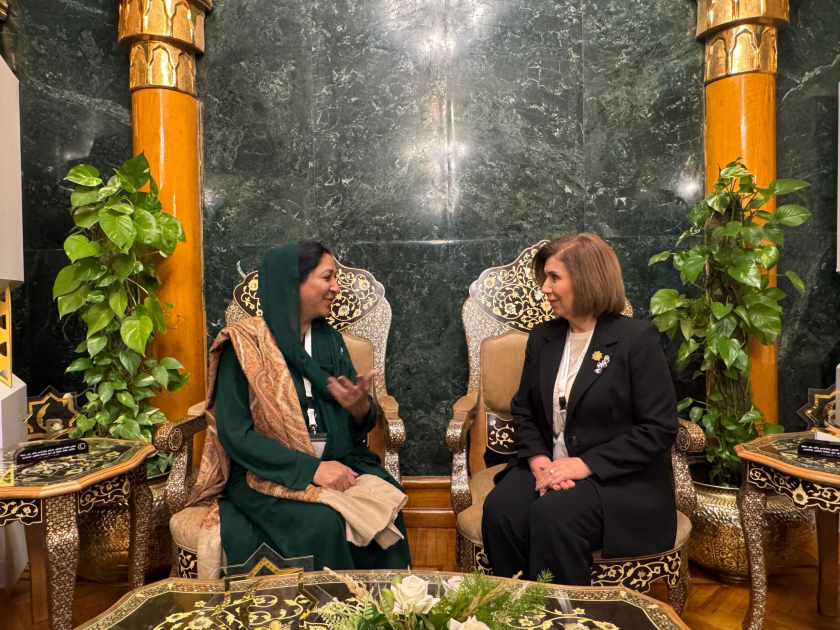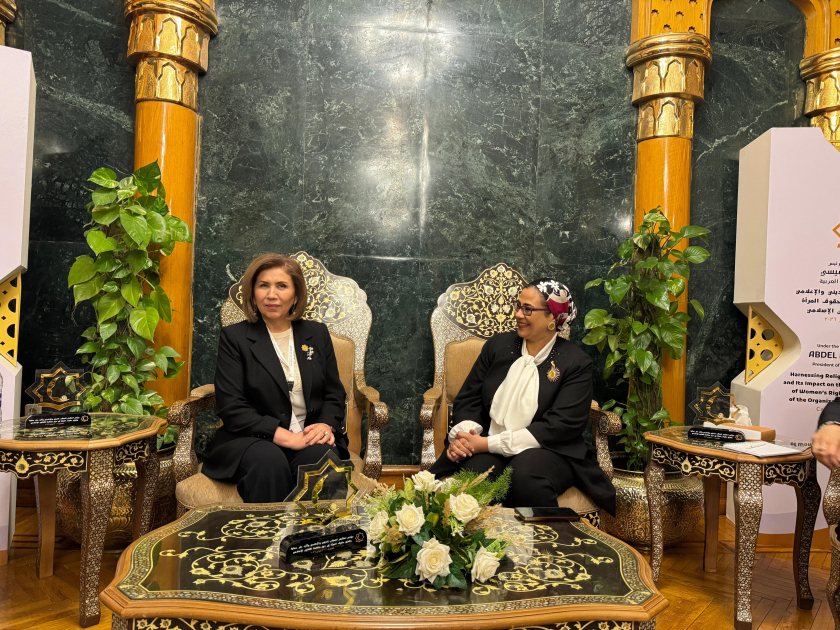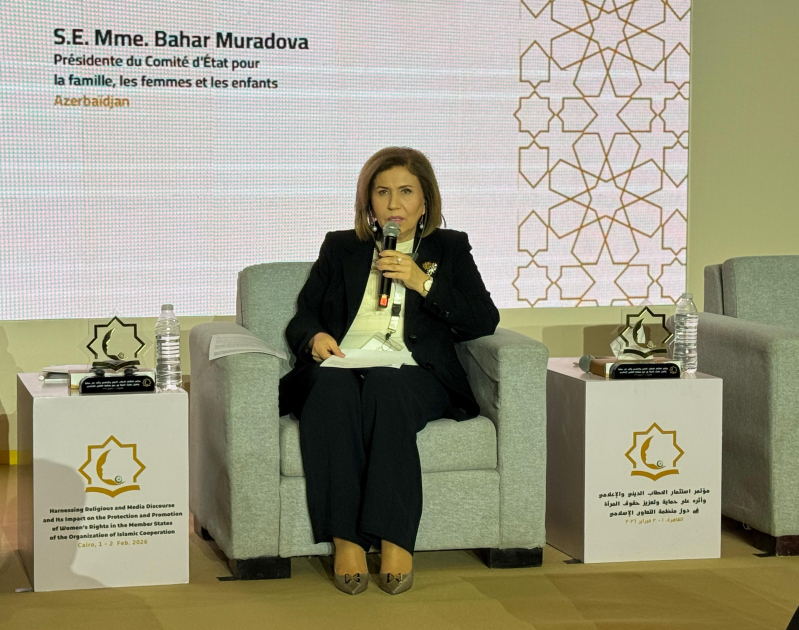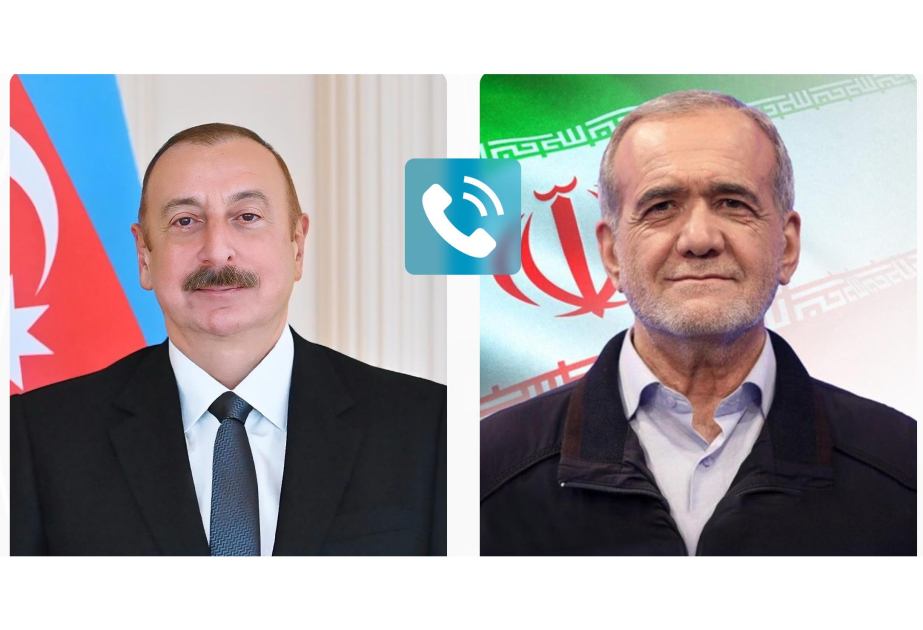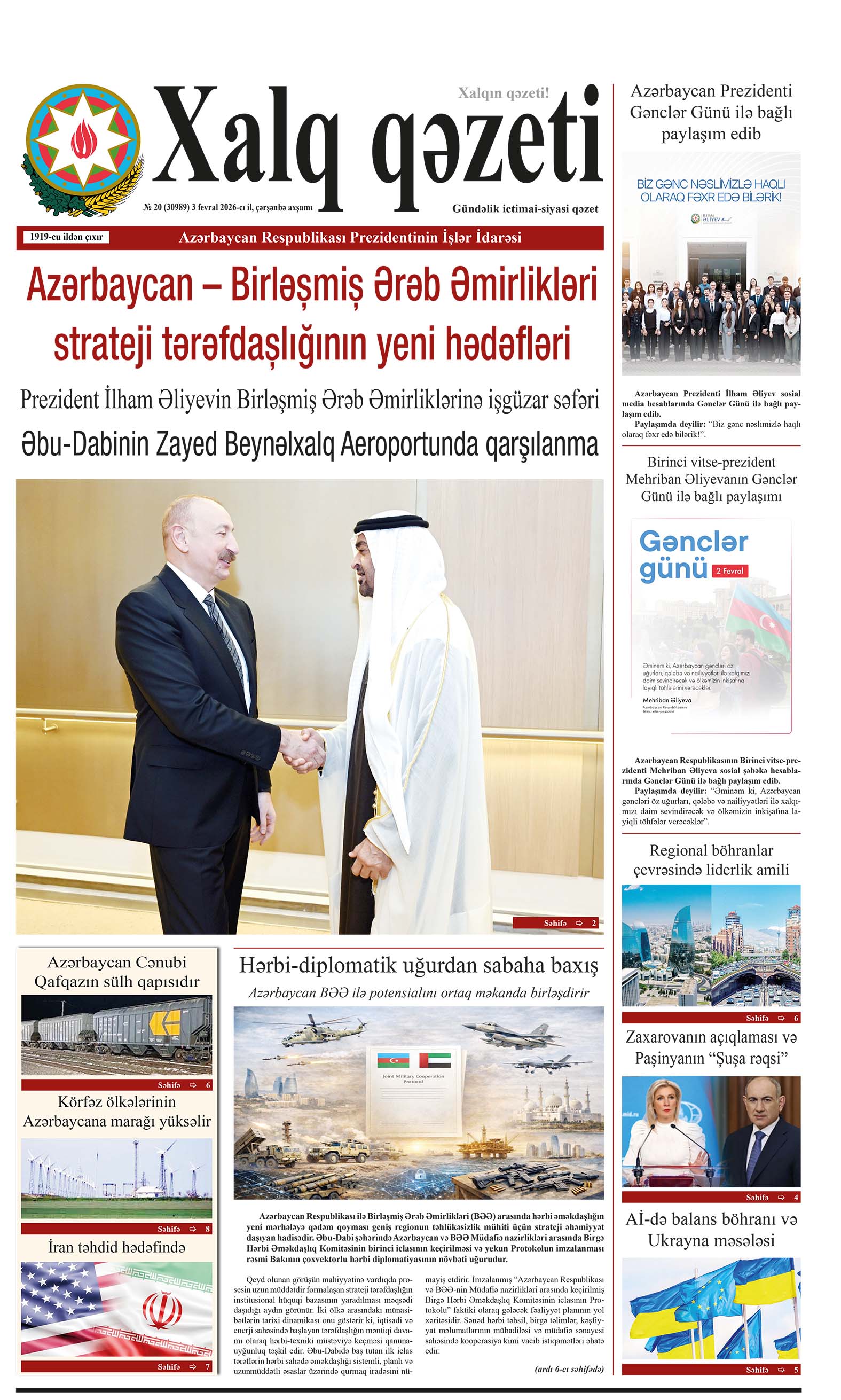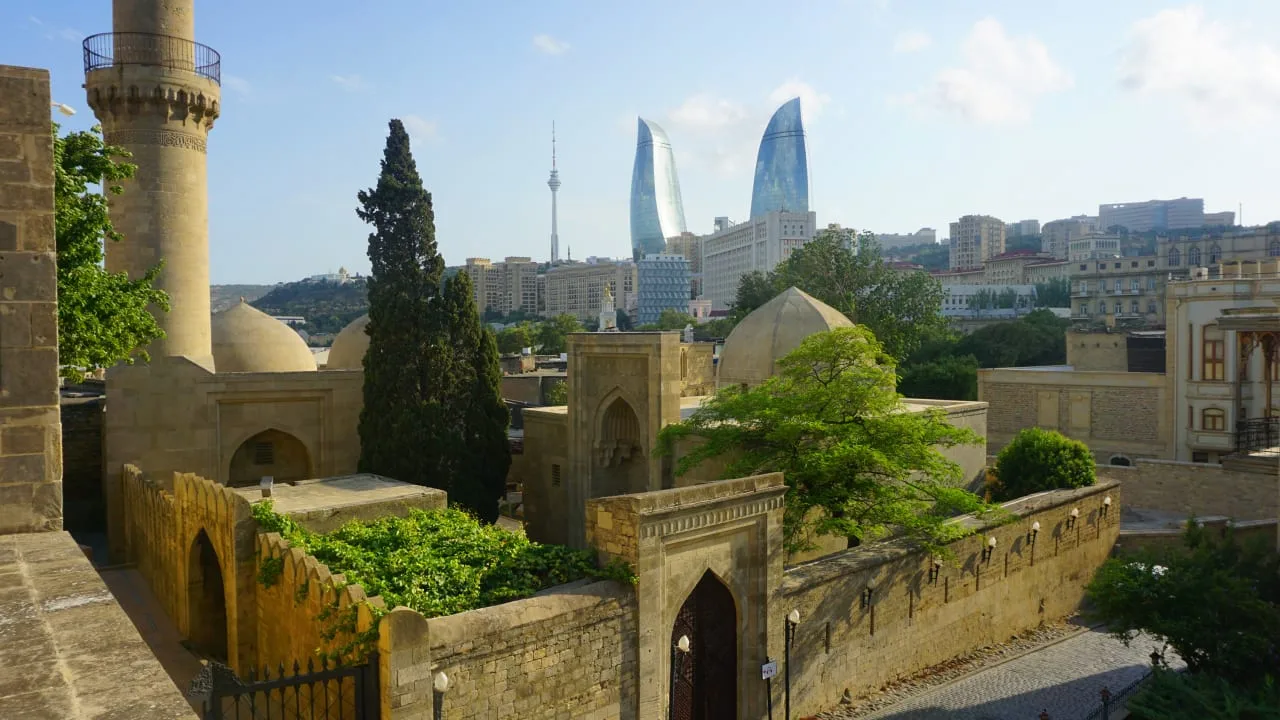Guivami Rahimli: The US should support its strategic interests in the region rather than the Armenian diaspora interests
The US - Azerbaijan relations are in a position to influence Russia - Armenia and Iran - Armenia relations. However, there is another force at play that influences the three relations simultaneously: the US - Armenia relations. These dual relations between the two countries have two branches of governance: the Congress, that has historically prevented the improvement of the relations with Azerbaijan and the Administration leg, which displayed some advancements since the start of Azerbaijan’s independence.
During early years of Azerbaijan’s independence, the relations with the USA faced a major difficulty, especially regarding the American Aid program. The US government prepared an Aid program “Freedom Support Act” for the former Soviet republics. However, in December 1992, the Congress added Section 907 to the “Freedom Support Act”, banning direct aid to Azerbaijan.
Of course, this was the result of activities of the Armenian-American lobby groups in the Congress.
During this period, the American oil companies who tried to establish their business in Azerbaijan, were confused about the hostility from the US authority, especially regarding the aid to Azerbaijan.
Azerbaijan, which was strategically significant in the US foreign policy, lost 20% of its territory during the 1988-94 Karabakh war. Despite illegal occupation of the Azerbaijani territories, Armenia was the second country on Washington’s list of recipients of the foreign Aid program, in terms of "Aid Per Capita" among the former Soviet republics.
Although the UN Security Council adopted four resolutions during the ongoing war between Azerbaijan and Armenia on lifting the Armenian occupation, Washington did not impose any sanctions on Armenia to change the status-quo related to Azerbaijan’s occupied lands in Karabakh region, identified by them as "invaded territories".
In these early years, the US approach towards Azerbaijan was mostly determined by energy benefits and this became peak topic for mutual interests.
President Bill Clinton (1993 - 2001) actively joined the discourse and supported Azerbaijan’s energy initiatives. Although the Armenian lobby was owning noteworthy importance for domestic interests, Clinton’s rapprochement was meaningful for the regional geopolitics, and demands of Azerbaijan became more acceptable for the US since that period.
The Bush period which lasted between 2001 and 2009, includes major challenges for the US foreign policy due to the 9/11 terrorist attacks. President George Bush adopted one of the most significant foreign policy doctrines in the US history, a global struggle against terrorism. Azerbaijan was accepted as a strategic ally for the USA in fights against terrorism. Consequently, energy-based relations turned into a security-based type.
Azerbaijan opened its airspace to the US flights, and President Heydar Aliyev declared his explicit support for global security. The country rapidly integrated into this military cooperation and achieved the way of balance politics as Heydar Aliyev formulated.
After the 9/11 terrorist attacks, the US Senate has adopted an amendment to waive Section 907 by confirming the President’s free decision on the issue to obtain Azerbaijan’s support for military operations in Afghanistan. Thus, the primary negative element of the US - Azerbaijan relations eliminated which meant that the power of the Armenian lobby decreased and lost its persuasion power slightly to pressure the US administration.
President Barak Obama’s foreign policy approach was different than previous presidents due to regional and global challenges. This approach was mainly shaped by military costs abroad and the unstable financial situation at home. He gave high importance to the domestic issues, and the Armenian lobby took advantage to enforce pressure on all affairs related to Azerbaijan.
Regarding Azerbaijan, the Obama period (2009-2017) is characterized by the normalization process between Turkey and Armenia with the support of the USA. Azerbaijan criticized this process, and it was a cause of disappointment towards the US foreign policy. Baku was concerned with this kind of developments in the region and obviously explained possible precautions related to energy transfer from Azerbaijan to the West. President Ilham Aliyev sent a clear message by rejecting the attendance to the Istanbul summit of the Alliance of Civilizations in April 2009. He also didn’t accept the invitation of the State Secretary Hillary Clinton to meet President Obama. For avoiding misunderstandings, President Obama directly talked to President Aliyev for decreasing the tension. Azerbaijan was highly worried that opening of the Turkish-Armenian border can cause a new crisis in the Nagorno-Karabakh conflict, as well as economic advantages for Armenia which is a strategic ally of Russia.
The Nagorno-Karabakh problem did not occupy the agenda of the Obama administration sufficiently if we compare it with the Clinton and Bush periods. All this caused damages for the long-term US interests in the region, especially for the bilateral relations with Azerbaijan.
When Donald Trump was elected the President of the USA in 2017, he tried to repair the negative outcomes of the previous policies by accepting Azerbaijan as a secular country which supports the collaboration with the United States. He described the US - Azerbaijan relations as “a strong partnership built on the foundation of a number of shared interests.”
The security-based approach of the Trump administration highlighted the importance of Azerbaijan’s collaboration in the fight against terrorism. Since the start of the American-led peace operation in Afghanistan, Azerbaijan made its infrastructure available to these operations, and its transport infrastructure was used for transiting of non-lethal cargo for coalition forces in Afghanistan. Along with this, Azerbaijan had also a larger troop presence in Afghanistan, supporting the US counterterrorism efforts rather than some NATO members, including the Netherlands, Norway, and Spain.
While having Azerbaijan’s support in the United States peace operations, Trump was quite displeased with deployment of Armenian troops to Syria’s Aleppo, supporting Russia’s Syrian intervention which resulted in canceling a scheduled meeting with Armenian Prime Minister Pashinyan.
Tramp’s congratulatory letters to President Ilham Aliyev on different occasions contained important messages. They commended Azerbaijan’s contribution to European energy security through the Southern Gas Corridor (SGC), its exports to the global energy market, as well as its role in ensuring regional prosperity and stability.
Currently, there are three major oil and gas pipelines in the region, which bypass Russia and Iran: the Baku-Tbilisi-Ceyhan pipeline, which runs from Azerbaijan through Georgia and Turkey and then to the outside world through the Mediterranean; the Baku-Supsa pipeline, which carries oil from the Caspian Sea to the Black Sea and then via tankers through the Bosporus to European markets; and the Southern Gas Corridor which includes the SCPX, TANAP and TAP pipelines, starts from Azerbaijan and crosses seven countries, coming ashore in Southern Italy.
“With this project, we are creating a new energy map of Europe,” said President Aliyev at the SGC inauguration ceremony. “…I am sure that this project, being implemented as part of broad international cooperation, will in the future serve to deepen cooperation in Europe and in our region, not only in the energy sector, but also in all other spheres.”
SGC provides a new source of energy to Europe, increasing security of supply and creating new opportunities for growth. These supplies are a blessing to southeastern Europe, which was almost dependent on the pipelines from Russia and as a result of the Russian - Ukrainian war, Brussels cut off the energy flow with Moscow and had to look for alternatives.
Today, the Biden administration’s approach towards Azerbaijan mostly based on changeable dynamics in the global politics, as well as on the domestic pressures made by the Armenian lobby. While the US leaders are dependent on these factors, Azerbaijan has also some options to shape the relations with its energy and security agendas. The leadership of Azerbaijan has been successful in implementation of the balanced policy since the late president Heydar Aliyev period. Its close relationship with the Non-Aligned Movement and Organization of Islamic Cooperation, mutually beneficial cooperation with Turkey, Pakistan, Israel, the United Kingdom, Italy, and other EU countries, show how the geopolitical landscape in the region has changed. Their support for Azerbaijan has been seen during the military conflict with Armenia, when Azerbaijan won not only on the battlefield, but also at diplomacy, restored its internationally recognized territorial integrity, liberating Karabakh region from Armenian occupation. A peace deal has been agreed upon between Armenia and Azerbaijan to establish lasting peace in the region. If the sides are satisfied with the current situation, there is no expectation for a negative outcome. Based on this, Azerbaijan explores new grounds to bolster the ties for a long-term partnership. All this clearly shows Azerbaijan’s approach to bilateral relations with the USA.
But, Washington ignored US geopolitical interests and supported “the Armenian Protection Act of 2023” under pressure of the Armenian lobby groups and the Senate voted for halting US military aid to Azerbaijan.
And recently, the US Commission on International Religious Freedom prepared a report citing concerns for the preservation of Christian heritage in Azerbaijan’s Karabakh region, a territory liberated from Armenian occupation. One of the authors of the US Commission’s report, Danielle Saroyan Ashbahian, has direct connections to Armenian diaspora groups. As a result, Secretary of State Antony Blinken added Azerbaijan to a watchlist, meaning it will join the blacklist, which carries potential sanctions.
The decision to list Azerbaijan as a watchlist country is puzzling and opposes Pope Francis’ commendations, who praises religious tolerance in Azerbaijan, the country that plays “… great significance for peaceful coexistence and for peace in the world.” The rankings sites include Azerbaijan with its unique ethnic and religious groups into the list of most tolerant nations in the world, successfully promoting the values of multiculturalism.
During Armenian occupation, Azerbaijan’s cultural artifacts in Karabakh have been systematically vandalised and destroyed, cemeteries have been demolished, and sacred sites desecrated. This was especially the case in Aghdam, which was described by the international media as “a ghost town” and “Hiroshima of the Caucasus.” However, the inclusion of Armenia on the same watchlist, never materialized, prompting accusations of double standards.
The role of diasporas and ethnic lobbies have historically been a major shortcoming of Washington policy. It is of utmost importance to pursue wise policies that do not further ostracize the US partners and allies. American foreign policy can truly benefit its national interests in the South Caucasus and wider Caspian region if it applies a sober, strategic thinking to its foreign policymaking process, rather than acting under the influence of Armenian lobby that the Biden administration and the US Congress pursue today.
Currently, the concern is not that President Biden did not issue a new Section 907 waiver as a result of the Armenian lobby’s activity, but that Washington’s actions cause growing irritation with its anti-Azerbaijan initiatives and challenges the partnership with Azerbaijan.
The ongoing Russia-Ukraine war changed the geopolitical landscape in Eurasia. The USA should carefully consider its strategic interests in the region rather than continuing with historically driven influence of the Armenian diaspora interests. Azerbaijan, with its valuable geographic location and regional diplomacy, is an important actor that must not be underestimated. For the USA, a core principle in bilateral relations should be structuring the relations as a “win-win” for both countries.
Guivami Rahimli
PhD, Professor at Baku State University,
lecturing energy security, multilateral and regional
diplomacy at the faculty of international relations


